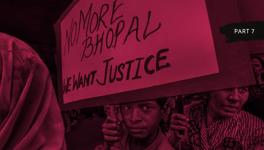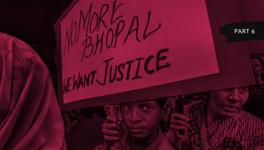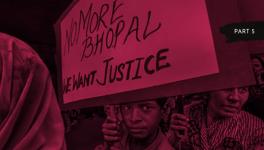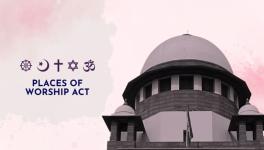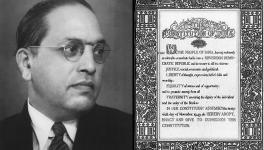Final Call for Negotiated Settlement in Ayodhya Dispute, Both Parties Trying to Reach Win-win Situation?
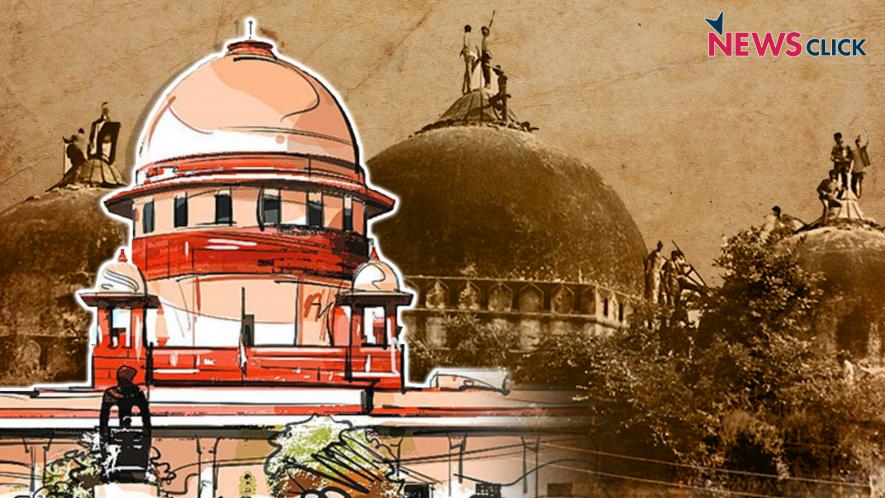
New Delhi: Of late, calls for negotiated settlements in the Ayodhya dispute have gown louder with each parties, including the intelligentsia, earnestly trying to reach to a win-win situation.
While the Supreme Court has concluded the marathon hearing on October 17, public intellectuals and stake holders in the dispute have reportedly intensified their efforts for a solution to avoid possible backlash from either of the party following the verdict. The statement of negotiated settlement is now read as “conditional” settlement, implying that the Muslim parties should pave way for building the Ram temple at the dispute site, with some ifs and buts.
Chairman of one of the key parties in the dispute, the UP Central Sunni Waqf Board, Zufar Faruqui, on October 17 submitted a proposal before the SC-appointed mediation panel reportedly expressing its wish to hand over the disputed site to the Hindus parties on certain “conditions”.
The controversial move, as expected, earned wrath of a section of Muslim intelligentsia who argued that the Board’s chairman, against whom the state government has recommended an inquiry by the Central Bureau of Investigation (CBI) into a corruption case, has tried to save his skin by “arbitrarily” announcing to hand over the disputed land.
Advocate Shahid Rizvi, representing the Waqf Board in one of the suits on the matter, confirmed the move, clarifying that the board would withdraw the suit on “reasonable conditions”. But he did not say what these conditions were.
Rizvi said since this is a civil case, the parties, as per the provisions of Civil Procedure Code (CPC), can continue mediation efforts and submit a final report before the verdict is pronounced.
The board—as reported—has set the following conditions for solution: (a) suitable place in Ayodhya to build a new mosque, (b) the land can be handed over to the government if it agrees that there is no further claims on mosques in Kashi and Mathura, (c) mosques under the ASI be made available for prayers, (d) the government gives funds for renovation of 20 mosques in the town.
Rizvi claimed that the five- judge bench of the apex court had categorically stated that the parties can continue to mediate even as hearings were on and that if the parties reach a mutual decision, a report to that effect can be filed in the court.
While the proposal has backing of some of the contesting parties, not all are on board. It’s not clear whether the new settlement formula will have any hearing. The withdrawal proposal has got some mixed reactions from Muslim intelligentsia and some public figures.
According to Advocate Zafaryab Jilani, Waqf Board’s counsel and convenor of the All India Babri Masjid Action Committee, the stage—where any kind settlement could have been considered—has passed. “The settlement cannot be done between the Sunni Waqf Board and the Government of India, as the latter is not a party in the matter. Since the hearings are over, I don’t think any proposal given by the Sunni Waqf Board to the mediation panel will lay any impact on the verdict,” he said.
Asked as to why the board, whom he represents, came to the fore with an offer which even he is not ready to accept, he claimed, “I don’t think that the Sunni Waqf Board has made any such offer…it contested the case till the conclusion of the hearing. There is no change in stand of the Sunni Waqf Board. Whatever they have given in writing to the mediation panel is confidential.”
Even Zufar Faruqui—said Jilani—knows it well that as per the Waqf Act, he cannot give away, sell, exchange or donate any graveyard or mosque to anyone.
Are mediation and negotiation, even at this stage, preferable to a court verdict? Can the proposal influence the judgment, which is reserved, and is it too late to come up with any proposal to withdraw the claim in the larger interest of the society?
Advocate Dushyant Dave, senior lawyer of the Supreme Court, does not think so. “It’s not too late till the judgment is delivered. Under the CPC, every court is under the obligation to use mediation to bring about a resolution between the parties involved. The court may attempt to have it resolved amicably till it delivers judgment. The court may also defer the judgment,” he said adding, “this is an issue where we can do much more as a nation, rather than mere politics”.
He further said that by prominently placing the construction of a Ram temple at the disputed site in Ayodhya in its election manifesto, the BJP politicised it to the extent of sharply dividing the society along communal lines. “It creates serious reservations in the minds of minorities—the Muslims. We must realise that we have over 150 million Muslims in this country. Can we afford to alienate the whole community? Dr Ambedkar, on the last day of the Constituent Assembly debate on November 25, 1949, had warned that if the Hindus, as majority community, do not make extra efforts to bring the Muslim community into the mainstream of the society to win over, the Muslims are the ‘explosive force and it can result into really serious complications’,” he said.
Both the parties, he suggested, should “compromise” on some “give and take” formula, adding that the mediation must take place without external pressure and without browbeating any group into submission.
“The Prime Minister himself should speak to all stakeholders, especially the Muslims, who matter, in this regard. However, it should not be given the impression of ‘victory’ by the disputants. The people in power should use ‘back channel’ to bring the two communities together,” Dave added.
A negotiated settlement—said Sudheendra Kulkarni, political analyst and columnist—is superior to either a court judgment or an Ordinance. “A negotiated settlement achieves the purpose of a win-win situation. It will promote communal harmony and strengthen national integration. My personal view is that the Muslim community and its leaders ought to have—right in the very beginning—come to the conclusion of handing over this site to the Hindu community for building or rather rebuilding the Ram temple because Lord Rama is very special for the Hindu religion. That would have been a very noble and grand gesture towards communal peace,” he said.
With regard to the reports that the Sunni Waqf Board is ready to give up the claim, he said, “If it leads to a negotiated settlement, it will be good.”
Asked as to what is the guarantee that no claims would be made on other such contentious sites in Kashi (Varanasi) and Mathura, he said, “None other than Lal Karishna Advani—who was at the forefront of the Ayodhya movement—had said that if the Muslim community gives up the claims on Ayodhya, he is willing to talk to appeal to the Hindu leaders not to make any claim on Kashi and Mathura.”
But at the same time, he clarified that it should not be considered as “surrender” before a majoritarian pressure; rather, it should be taken as a “goodwill” gesture. “Two things are required to build trust at this very delicate moment: (a) the Muslim community should give up its claims. This will earn enormous goodwill for the Muslim community among Hindus. (b) The organisations (the Rashtriya Swayamsevak Sangh or RSS and its affiliates – the Vishva Hindu Parishad or VHP and even the Bharatiya Janata Party or BJP) that led the demolition of the Babri mosque in 1992 must express sincere remorse and regret,” he concluded.
However, it is easier said than done in the present climate which is so toxic and where majoritarian biases are all apparent.
SC Advocate Shadan Farasat asked as to what is the meaning of a negotiated deal which guarantees something sub-constitutional. “You—in the case of Kashmir—had a negotiated accession to India and Article 370 was incorporated in the Constitution. But we saw how it was completely undone in a unilateral fashion. If a constitutional provision, which continued for the 70 years, can be undone like this, what is the meaning of a negotiated deal which guarantees something sub-constitutional?” he said.
Given a “serious distrust” between the two communities, he added, “If there was a situation where constitutional guarantees could be incorporated, it could have contemplated.”
Advocate MR Shamshad, who has represented Iqbal Ansari—one of the litigants in the Babri Masjid-Ram Janmabhoomi title dispute—said though it is not clear as to what has been proposed by the Sunni Waqf Board to the mediation panel, the action of its chairman in the last two months has undergone a “sea change”.
“I must clarify that this case is contested by six other Muslim parties in which board is one party and it has no more locus than any other individual Muslim parties. Every Muslim party is contesting the suit in their representative capacity of Muslims at large. Once the mediation failed, the case began in the apex court,” he said.
Asked about the mandate of the Board and if it can take any such decision, he explained, this is a representative suit in terms of the CPC. “To withdraw the claim on the disputed site is not possible at this stage because the hearings are over. I also clarify that mosque, graveyards and other such properties remain waqf properties irrespective of existence of the Waqf Board. Any Waqf Board is just a regulatory body which has only representative capacity of the community under the Waqf Act, 1995. The board does not have a free will to surrender the property. In case of any dispute, the board has to take permission from the court under the CPC to take up the matter for the community at large. And since it is fighting the case on behalf of the community, it cannot either surrender, transfer, exchange or donate the land, as it does not have title over it; it is rather working as mere a caretaker.”
When sked how much confident he is that the decision will be in the favour of Muslim parties, he said, “Our case was strong in the Allahabad High Court also, but we got 1/3 only. All infirmities and improprieties have been brought to the notice of the court with evidence and civil laws. We are sure that the decision will be in our favour.”
Fozail Ahmad Ayyubi, Advocate on Record in the SC on the Babri Masjid-Ram Janmabhoomi title dispute, outrightly rejected the Board’s proposal, adding that “there is no question of withdrawal at this juncture”. “Let the verdict come. Muslim parties have maintained the stand that it will, in any case, respect the SC judgment. The recent attempts made by the Waqf Board before the mediation committee were not representative in nature. A limited number of people attended the mediation—Dharma Das of Nirvani Akhara, Zufar Faruqui of UP Sunni Central Waqf Board and Chakrapani of Hindu Mahasabha. It was hard to accept that mediation would have worked, as certain stakeholders across the religious divide had openly resisted attempts to make amends and settle the decades-old feud over the ownership of the disputed land,” he said.
He alleged that the leak to the press may have been inspired by either the mediation committee directly or by the participants in the panel, which violates Supreme Court directive to maintain confidentiality. “The timing of the leak to the press and its confirmation by Mr Rizvi on October 17, 2019, on the very date when the hearing closed seem to have been well thought out. We must make it absolutely clear that we, the appellants before Supreme Court, do not accept the procedure by which the mediation has taken place, nor the manner in which a withdrawal claim has been suggested as a compromise,” he concluded.
Syed Qasim Rasool Ilyas, a member of the All India Muslim Personal Law Board and Babri Masjid Action Committee, too shared the same view. “The UP Waqf Board’s chairman is an individual and his stand is not clear so far. He had proposed mediation, but lawyers representing different parties did not agree to it. The apex court had asked for a report in sealed envelope. But it was selectively leaked in the media and we consider it intentional. Since it is now in public domain now, I accept that we had met the mediation committee twice. But it was inconclusive and the talks failed,” he said.
Asked why the AIMPLB or other Muslim organisation spoke to Faruqui soon after he went on record, he said, “He is inaccessible and not picking up the calls. He might doing so because the recommendation of a CBI inquiry against him.”
It is observed that after the ascendance of the Narendra Modi government in power, the Muslim community’s approach towards Indian polity seemingly changed. The paradigm shift took place when the Congress and other so-called secular parties too failed to construct any alternate or parallel narrative. Largely, they started using the same idioms and phrases in their political discourse to oppose the right-wing politics in the name of “strategy”.
However, Modi’s return to power seemingly disheartened the secular brigades and the minorities as well. As a result, the Muslims were left wandering alone in a crowd toeing majoritarian line.
Also read: Ayodhya: SC Allows Muslim Parties to Bring Written Note on its Record
Get the latest reports & analysis with people's perspective on Protests, movements & deep analytical videos, discussions of the current affairs in your Telegram app. Subscribe to NewsClick's Telegram channel & get Real-Time updates on stories, as they get published on our website.












